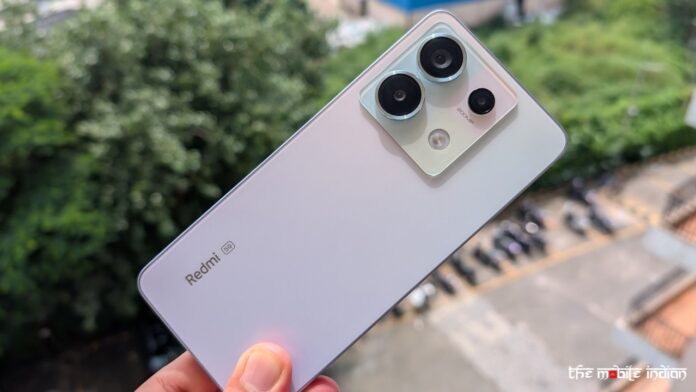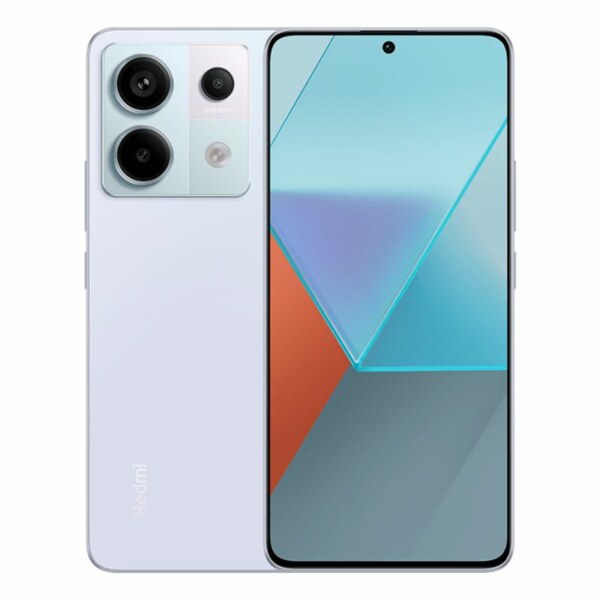Redmi debuted the Note 13 series earlier this year in January, consisting of three devices and out of those three, today we’ll be reviewing the Redmi Note 13 Pro 5G, which is currently selling for Rs 24,999 for the base model and goes up till Rs 27,999 for the top-end model. With the festive season incoming and brands announcing heavy discounts on their products, we’ll let you know in this review of Redmi Note 13 Pro 5G whether you should buy it during the sales or skip it.
Design & Display
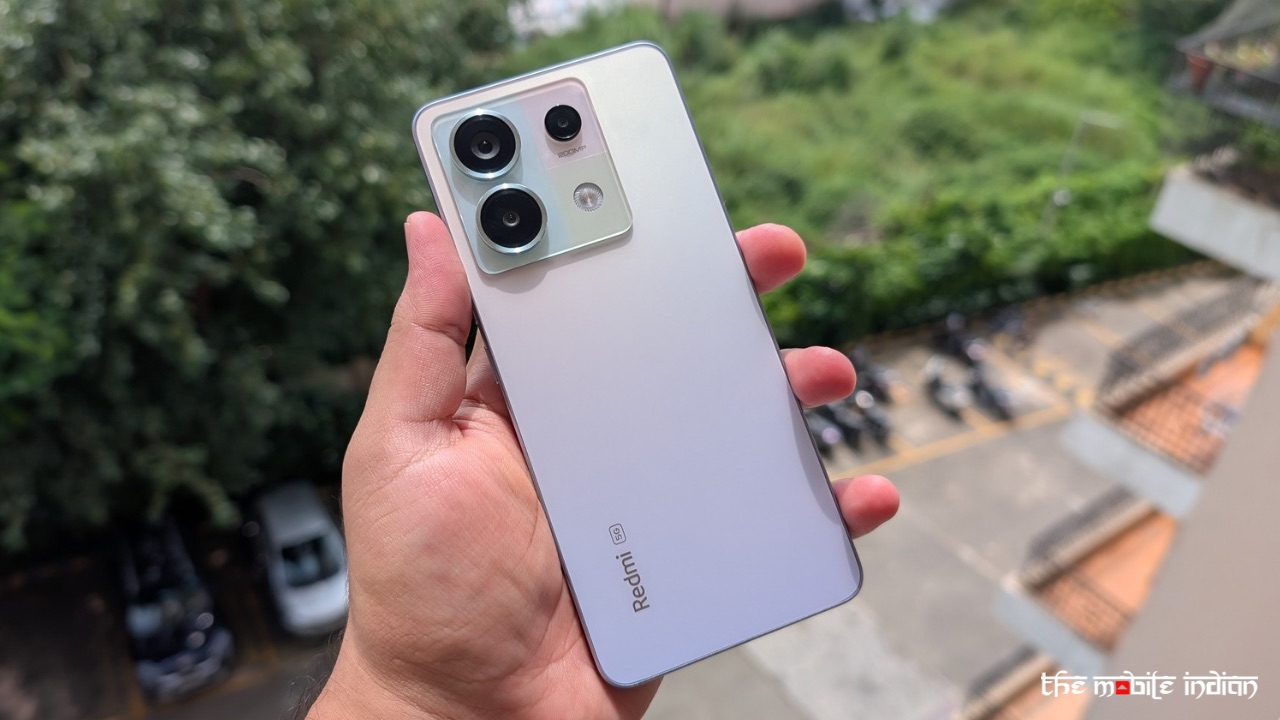
The Redmi Note 13 Pro 5 G’s design stands out from the crowd in all colours except black, which is a bit ordinary. The coral purple model we had for review had a slight gradient of blue as well. The camera module has a block design, housing the three Sensors and a flashlight.
The device has a dual-sided glass body, which means the back is also made of glass with a soft-touch matte finish, making it feel quite premium in the hand. The frame is entirely plastic and also has a matte finish, which does depart from the premium in-hand feel to some extent, but it’s manageable.
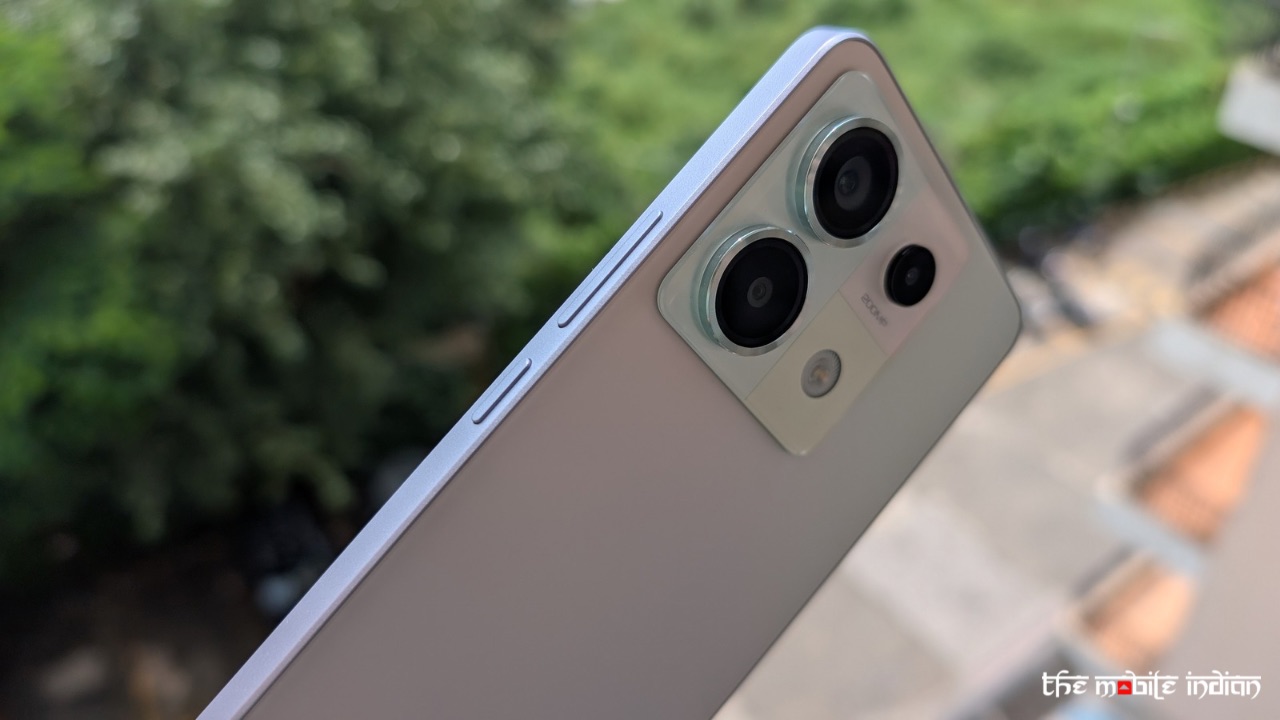
The sides are flat, accounting for decent grip in the hand. However, because it’s a relatively big phone, you can’t expect one-handed usage. The buttons on the right have a decent travel when clicked. The Haptics are also tight, well implemented within the software, and add to the premium feel, but they could have been stronger in our opinion.
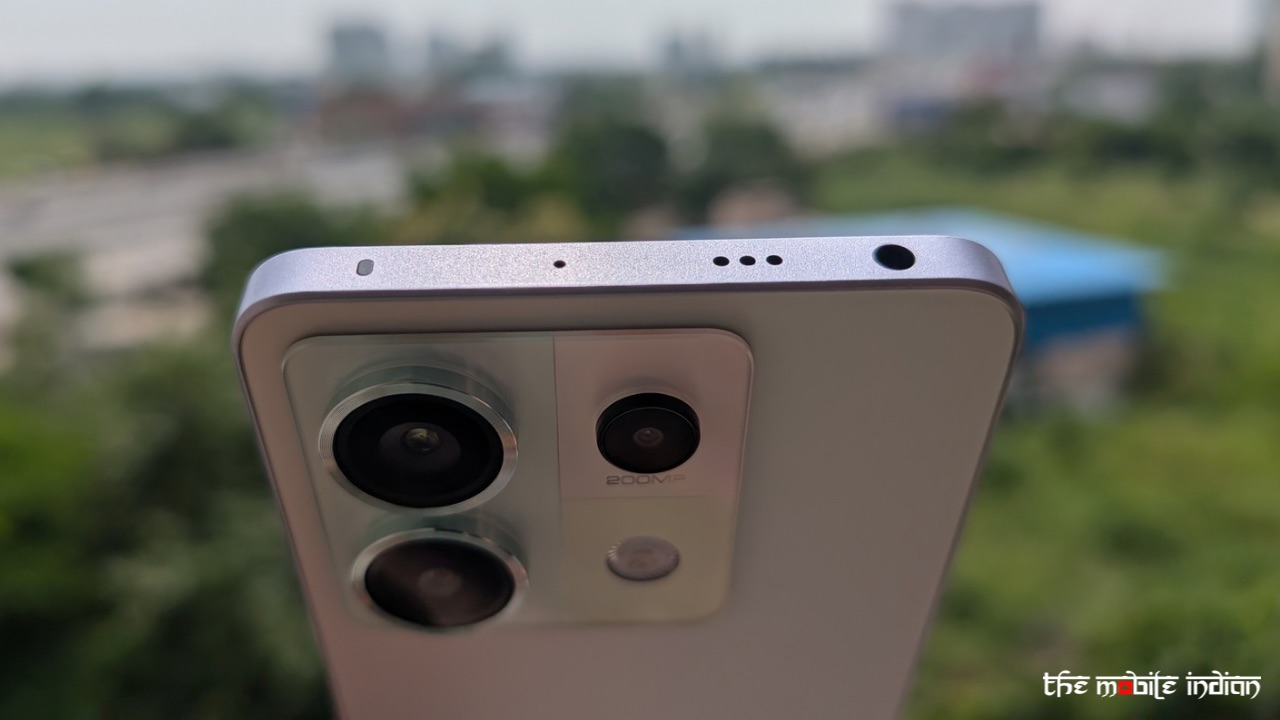
The bottom houses the speaker grille, a mic, a SIM Tray, and a USB-C port. The top side has a fake speaker grille because the earpiece doubles as the second speaker. Speaking of audio quality, with Dolby Atmos support, we’d say the Redmi Note 13 Pro speakers were not bad at all for their price. The sound quality remains high, and so does the loudness. The vocals sound clear, and there’s a slight hint of bass, too.
There’s a mic next to the speaker grille on top, paired with an IR blaster and a 3.5mm audio jack, which is difficult to find on smartphones nowadays. Including a 3.5mm Audio Jack is a nice touch for those who still prefer wired earphones.
The handset is also IP54 rated, so splashes and dust shouldn’t harm it. Redmi also includes a grey-coloured silicone case in the box, which is surprisingly high-quality.
Design-wise, we’d say the Redmi Note 13 Pro 5G nails the basics and looks as well as feels premium.
Coming to the display on the front, the Redmi Note 13 Pro 5G sports a 6.67-inch 1.5K Resolution AMOLED Display with a Refresh Rate of 120Hz, Dolby Vision, 12-bit colours, 1800 nits peak brightness and HDR10+ support.
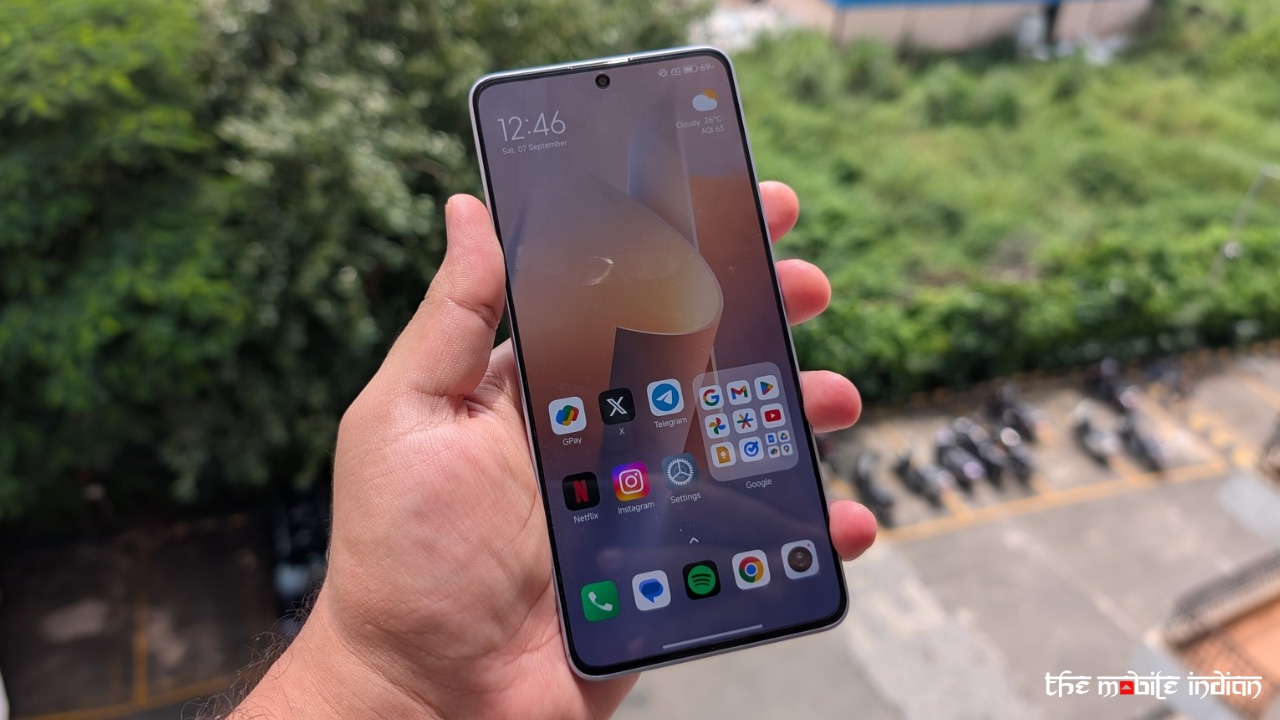
The display on the Note 13 Pro 5G is the ultimate one when it comes to quality. It feels like a flagship panel because it doesn’t lack in any area. The colours, viewing angles, and brightness levels in outdoor conditions are all top-notch.
The Netflix App shows that the device supports Dolby Vision and viewing videos on this panel was a treat for the eyes. The panel is also responsive to the touch and runs smoothly at 120Hz when set to default.
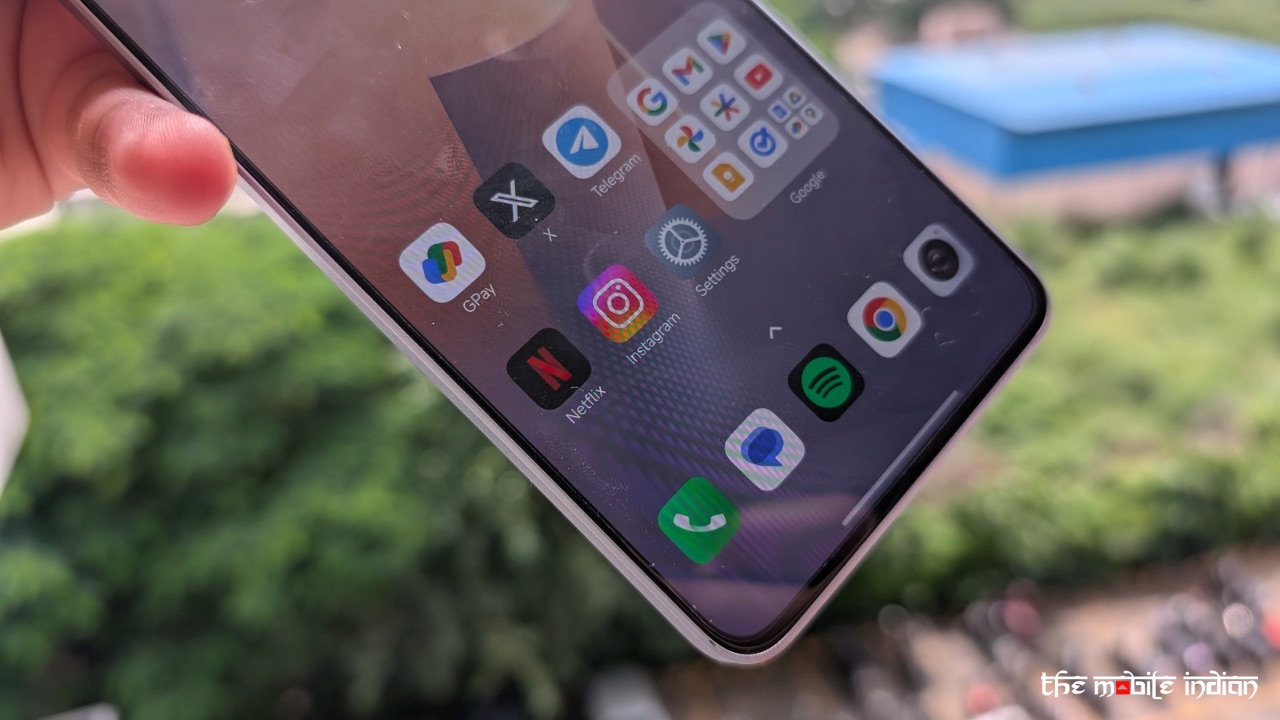
What’s even more surprising is how thin the bezels are compared to smartphones in a segment above, such as the Galaxy A35 5G and Galaxy A55 5G. The thin bezels add to the handset’s aesthetic appeal.
The in-display fingerprint sensor is an optical one and works as it should. It’s quick as well as accurate in detecting the finger.
Read More: Redmi 13 5G Launched in India: Check Price, Specs, Availability
Software & Performance
The device is equipped with Snapdragon 7s Gen 2 SoC under the hood, with up to 12GB of LPDDR4x RAM. It comes with up to 256GB of UFS 2.2 storage. It ran on MIUI 14 based on Android 13 when launched, but when we began using it, the device had the HyperOS update available out of the box, which is based on Android 14.
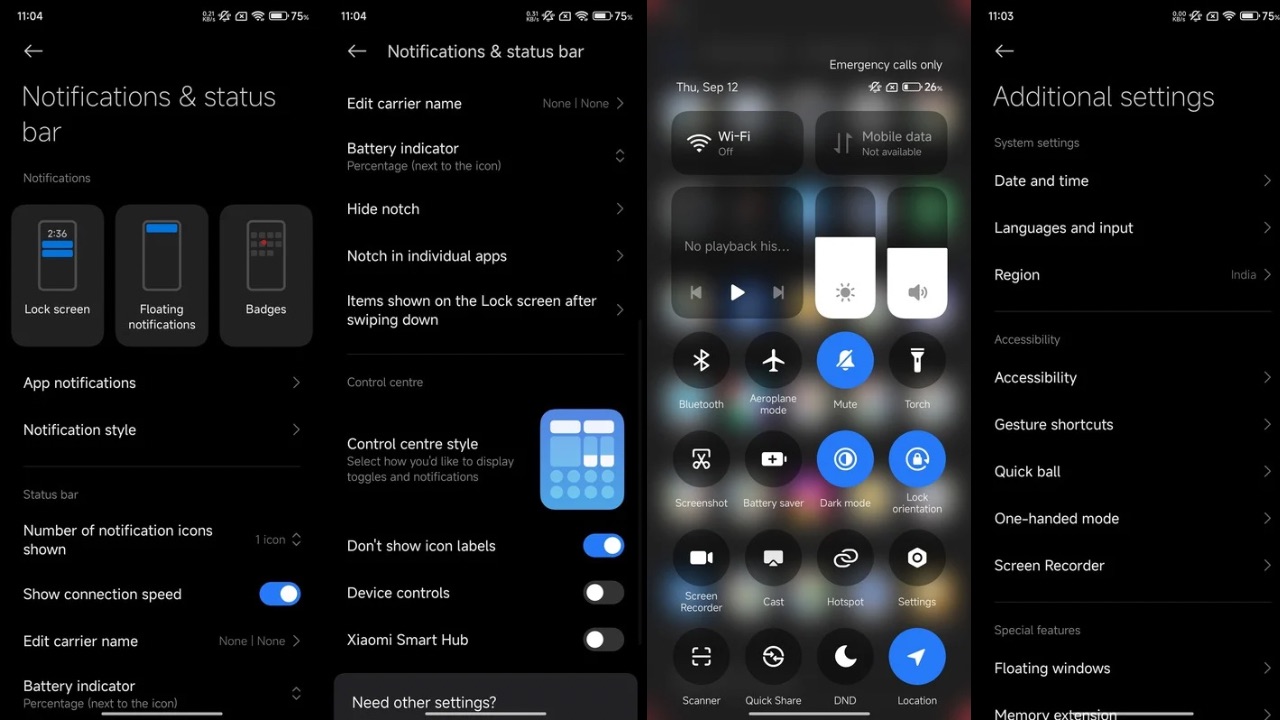
Speaking of performance, the Redmi Note 13 Pro 5G handles most daily tasks without any issues. The user interface animations are smooth, and switching apps is a breeze. We could notice some micro-stutters while opening and closing apps, but there was nothing major a software update couldn’t fix. RAM management is decent, and there’s nothing to complain about in that regard.
Gaming isn’t exactly the Redmi Note 13 Pro 5G’s forte, as the chip struggles to handle titles like Call of Duty or BGMI at maximum graphics. I could also notice some heating when trying to play these games at maximum graphics, which also leads to throttling and, ultimately, some lag. Gamers would be better off with smartphones that are priced slightly higher, such as the Poco F6 5G.
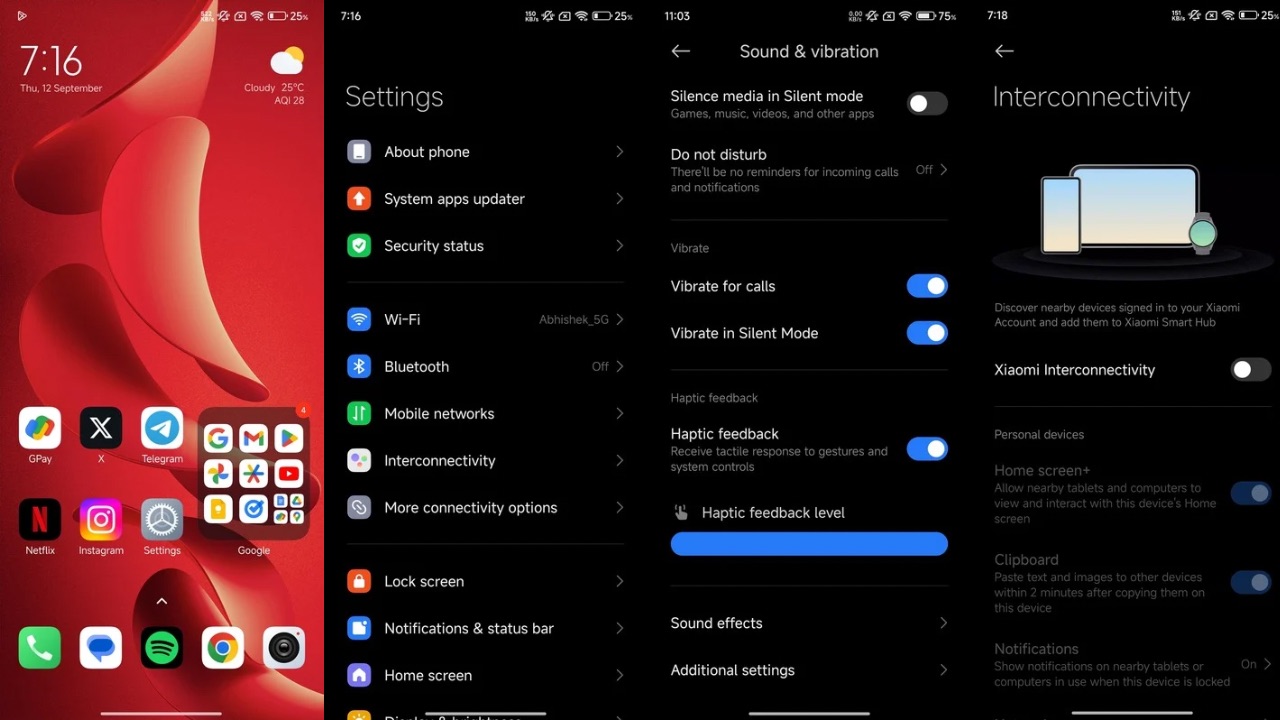
The software is filled with features, including various themes, a full-fledged lock screen customisation that is one of the best we have seen, animation speed control, Xiaomi interconnectivity for seamless control of Xiaomi tablets, watches, and phones, and essential features like app lock.
However, the software has its quirks, too. First, the always-on display doesn’t actually stay “always on.” It can only stay on for 10 seconds, and we don’t know why it’s called an “Always-on display” when it cannot stay lit. The panel seems impressive enough to support the feature, and we couldn’t think of any reason why Redmi nerfed the AOD functionality so badly.
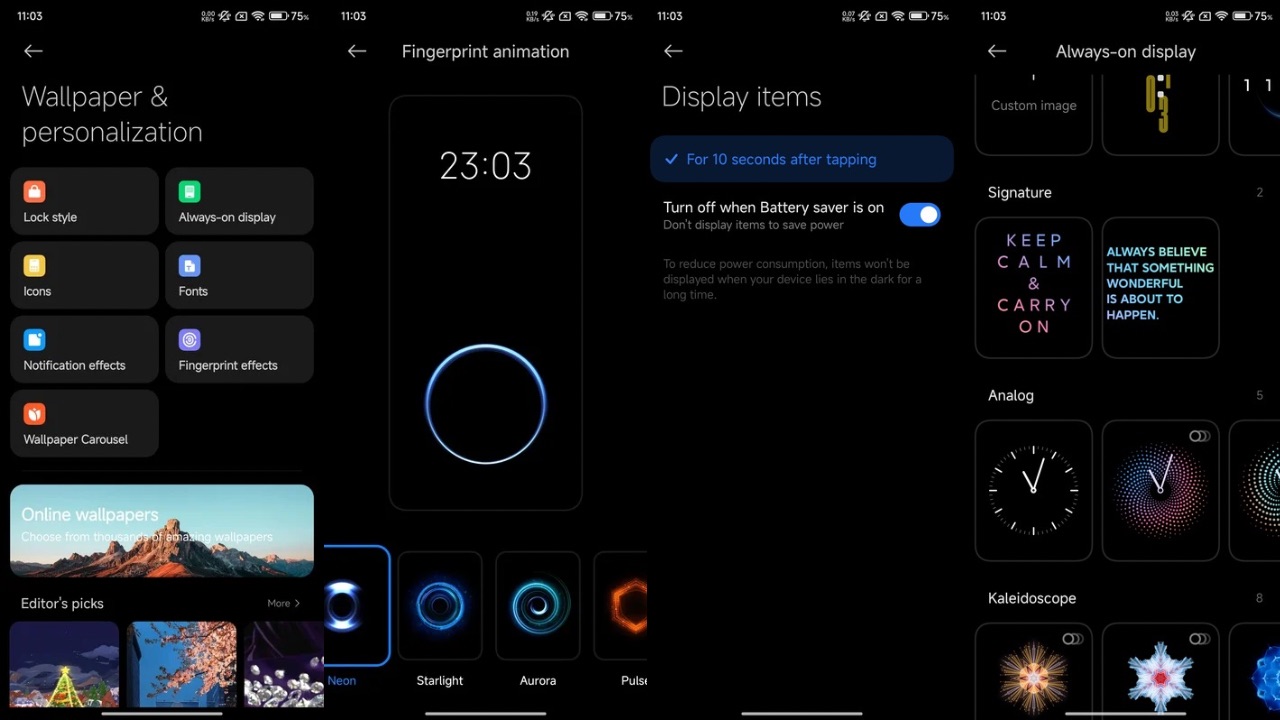
Secondly, it comes with a considerable amount of bloatware. While it can be uninstalled, apps like GetApps, Xiaomi’s own app store, cannot be disabled and are used to provide system app updates. Further, for some reason, the device comes with two Music apps, one of which has Chinese music, and the same app can fortunately be uninstalled.
The device is running on the July 2024 security patch which came with the HyperOS update and the Redmi Note 13 Pro 5G hasn’t received any update since.
In conclusion, the software performs well in smoothness and offers a good range of features. However, it falls short in covering some essential basics.
Connectivity-wise, 5G, Wi-Fi, and Bluetooth perform as they should, but NFC, which should have ideally been there, is a noticeable omission.
Battery life
The Redmi Note 13 Pro 5G packs a 5,100mAh battery with 67W Fast charging support. The device doesn’t struggle in this department, as it can easily last you a day and a half with usage including browsing the web, social media apps such as X and scrolling through Instagram Reels, watching YouTube videos, and chatting on WhatsApp. I could easily get 7 hours of screen-on time and sometimes more which is quite decent.
The device charged from 2% to 100% in around 47 minutes, which is a solid performance.
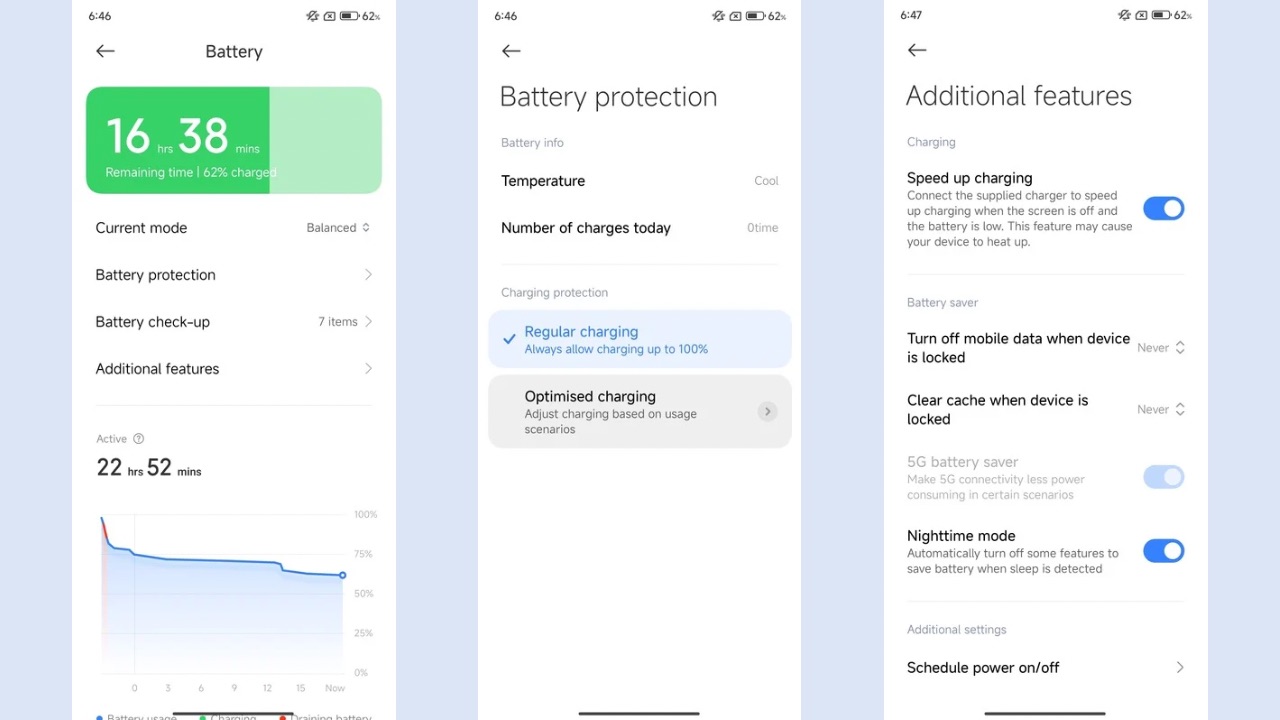
The device also offers battery protection features like optimised charging, speed-up charging when using the bundled charger, turning off Mobile Data when the device locks, and more. However, what I do not like about HyperOS is that it doesn’t show you screen-on time since the last charge, so I had to track it with a third-party app. In fact, it doesn’t show screen-on time of any sort, be it of the last 24 hours, which is disappointing.
Cameras
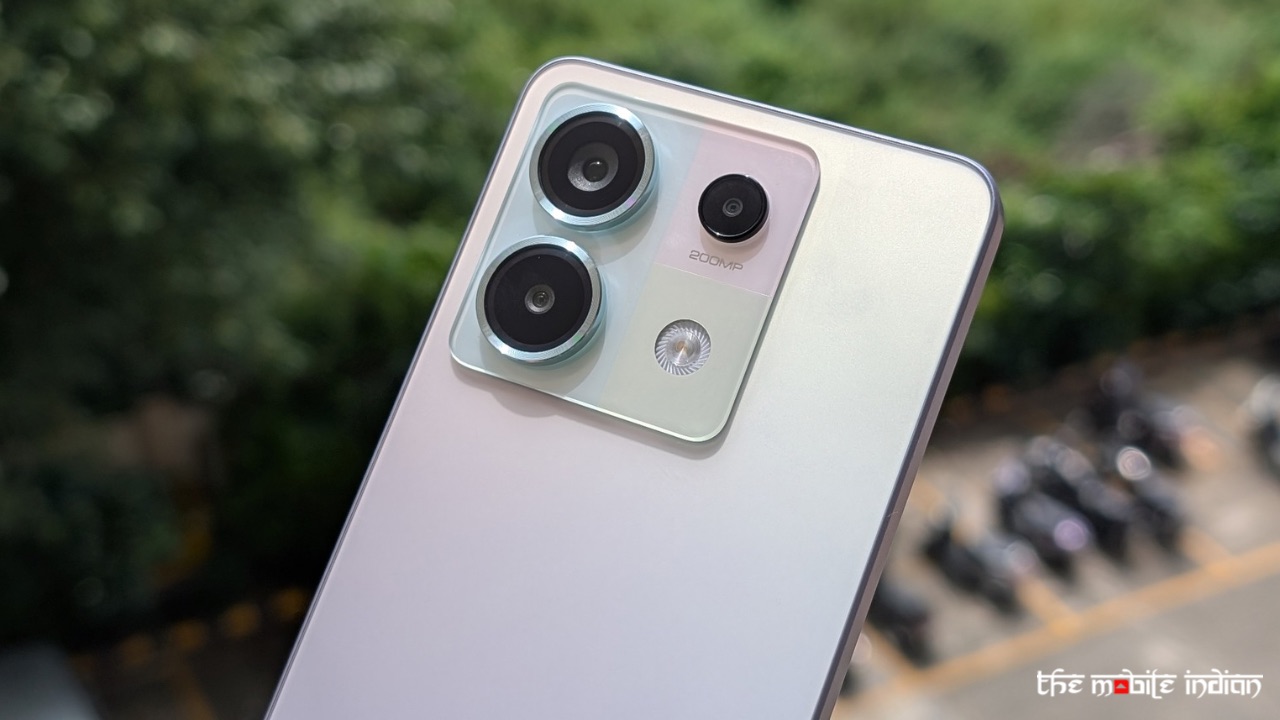
The Redmi Note 13 Pro 5G features a triple camera setup with a 200-megapixel Samsung HP3 f/1.65 primary camera, an 8-megapixel ultra-wide-angle camera, and a 2-megapixel macro camera. The smartphone has a 16-megapixel selfie camera.
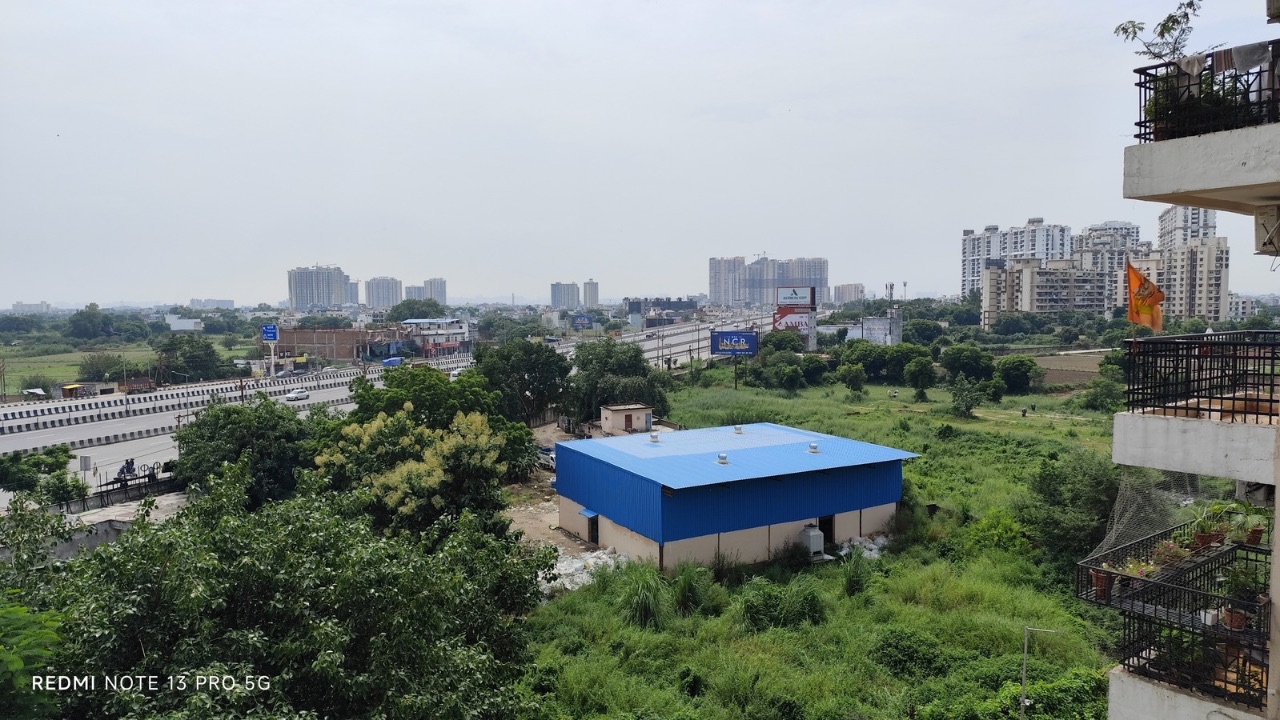
A 200MP shooter on a device that costs Rs 24,999 is a segment-first feature; the camera nails it in outdoor conditions. While the hue is cooler, the detailing is impressively high. The exposure is under control, while the dynamic range is quite decent, too. The colours stay vivid and look appealing. Overall, the shots look very impressive when you shoot under enough sunlight.
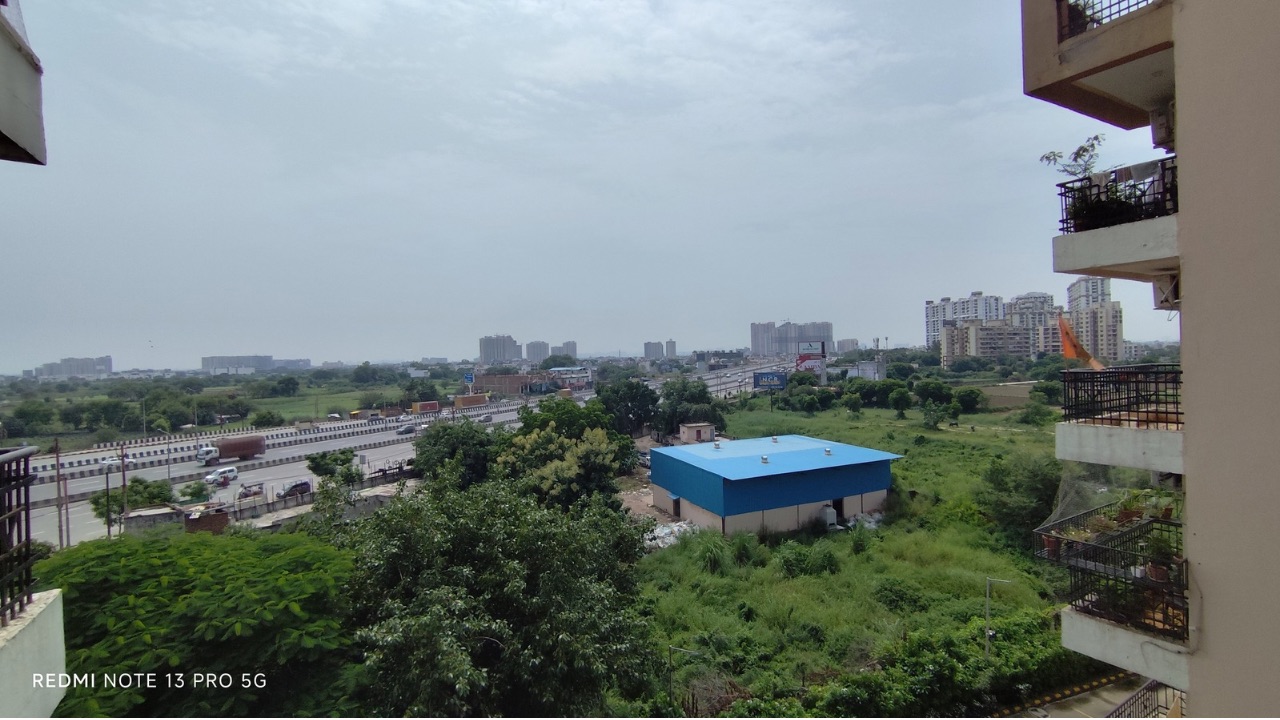
The photos tend to have a pronounced cool hue for ultra-wide angle shots, which feels overdone and unnatural. This excessive use of cooler tones results in images that appear somewhat distorted or off, detracting from the overall realism of the scene. The EDGE distortion is well controlled but the detailing at the edges takes a major hit where there’s a lot of noise as well. The overall photo also has fewer details than the ones taken by the primary sensor, but it’s acceptable.
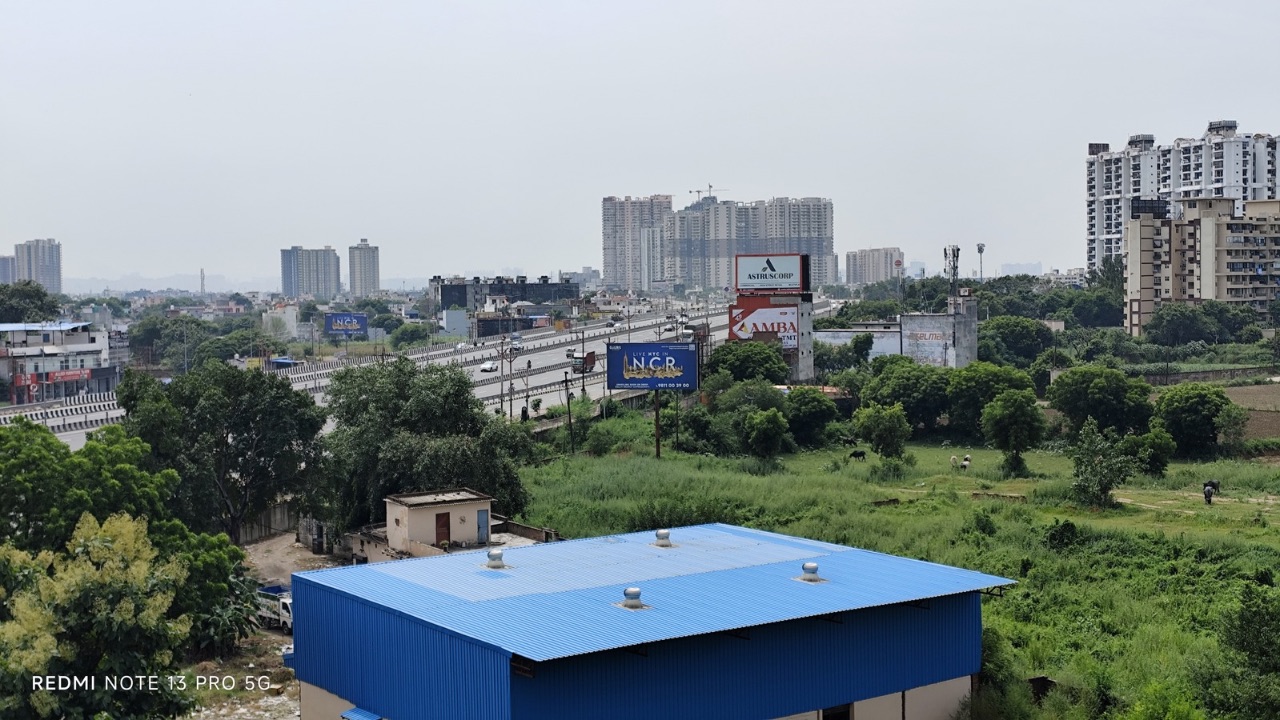


The device can zoom in up to 10x but anything beyond 2x is barely usable as the photo turns into an oil painting of sorts. As for the selfies, the skin tones are handled fine while the detailing is decent. The bokeh in portrait selfies has inaccurate edge detection and looks unnatural. However, the sensor handles standard selfies well and are unlikely to disappoint frequent selfie-takers.

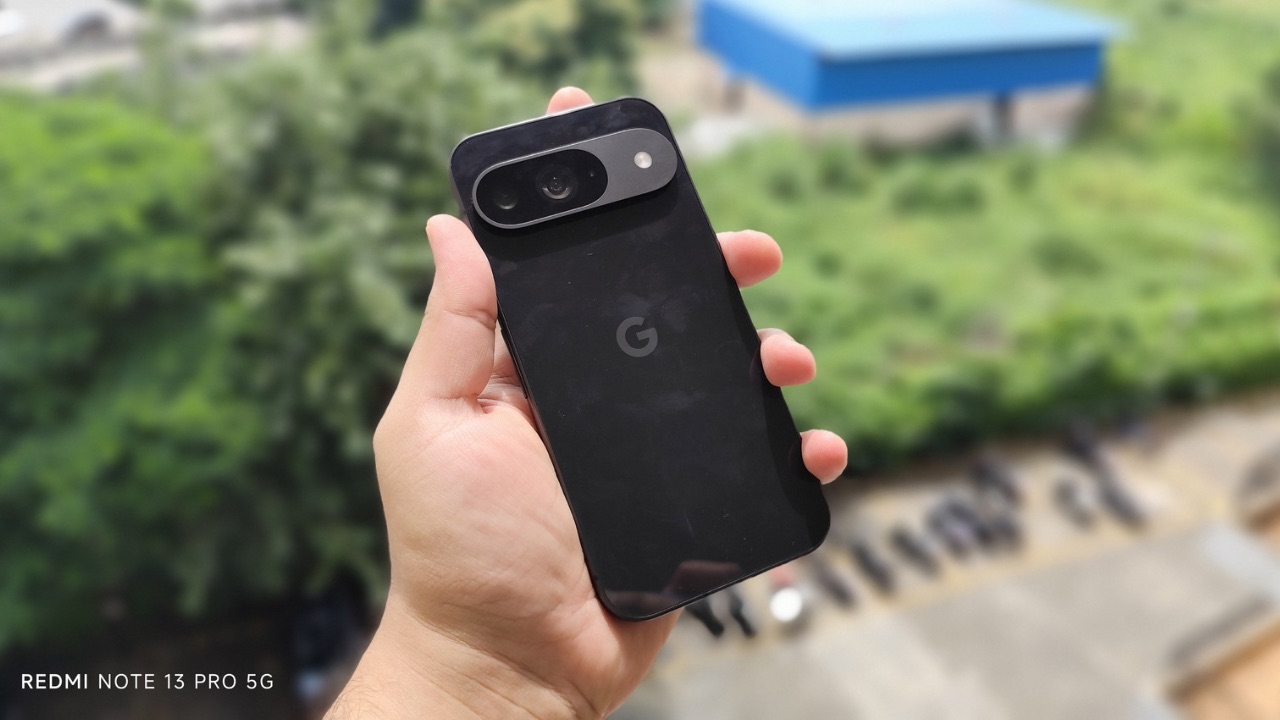
The portrait shots from the rear sensor are excellent. The photos maintain a natural color tone and accurate edge detection. Unlike selfie portraits, the bokeh effect looks natural in portraits shot by the rear sensor. They are sharp, clear, and leave a strong impression.
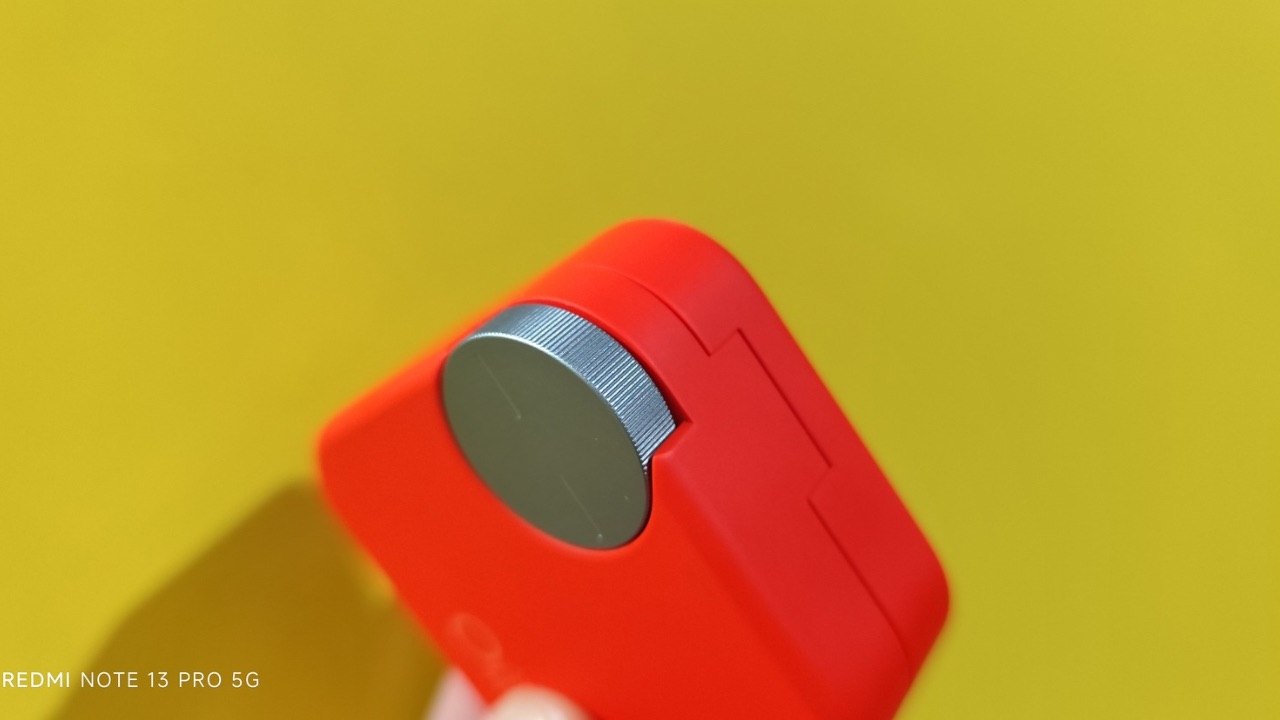
Photos taken under artificial lighting are once again impressive. The images are sharp, with excellent detail retention, and the colours appear vibrant and true to life. Exposure levels are well-balanced, ensuring no overexposure or harsh contrasts. Overall, the shots are visually striking and maintain high appeal.
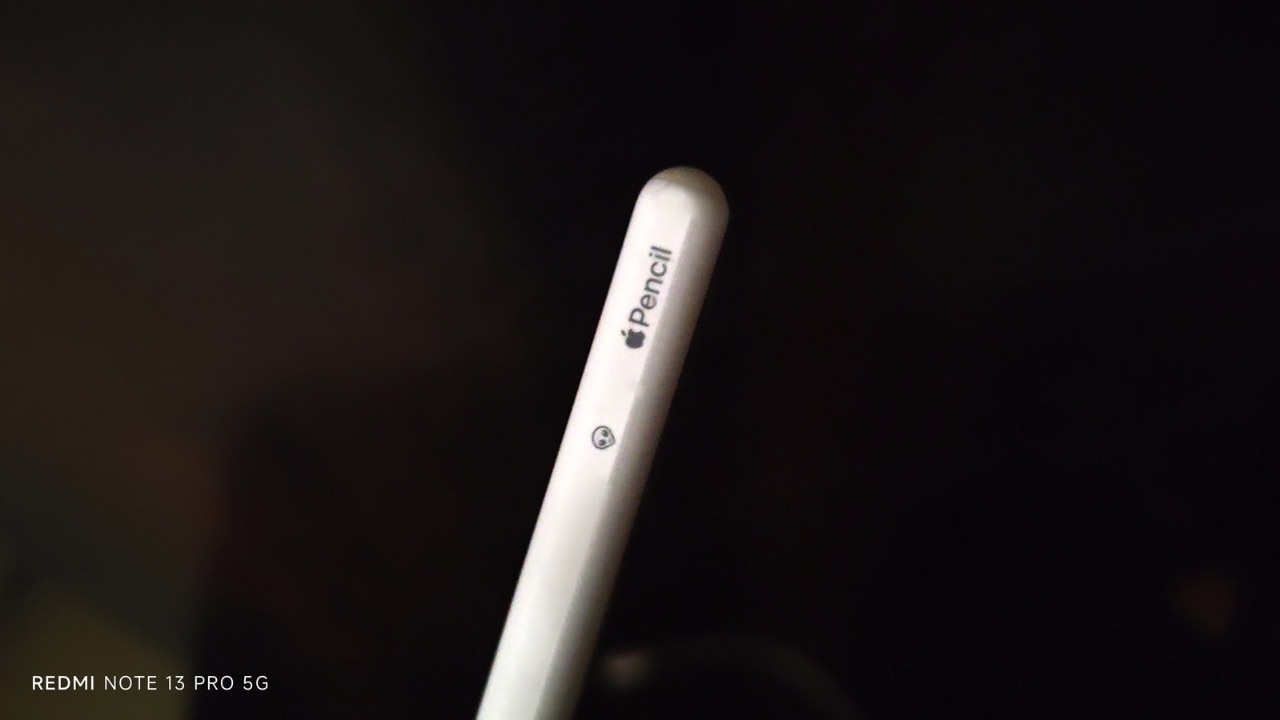
The sensor handles extreme low-light shots well. Focusing on the subject in such conditions is no issue, which is great because I don’t see it often. There’s some noise in the shot, but the exposure is cranked up for better visibility of the subject. Moreover, it does take a while to click the shot, and you’ll have to keep your hand steady; otherwise, the shot will turn out blurry.
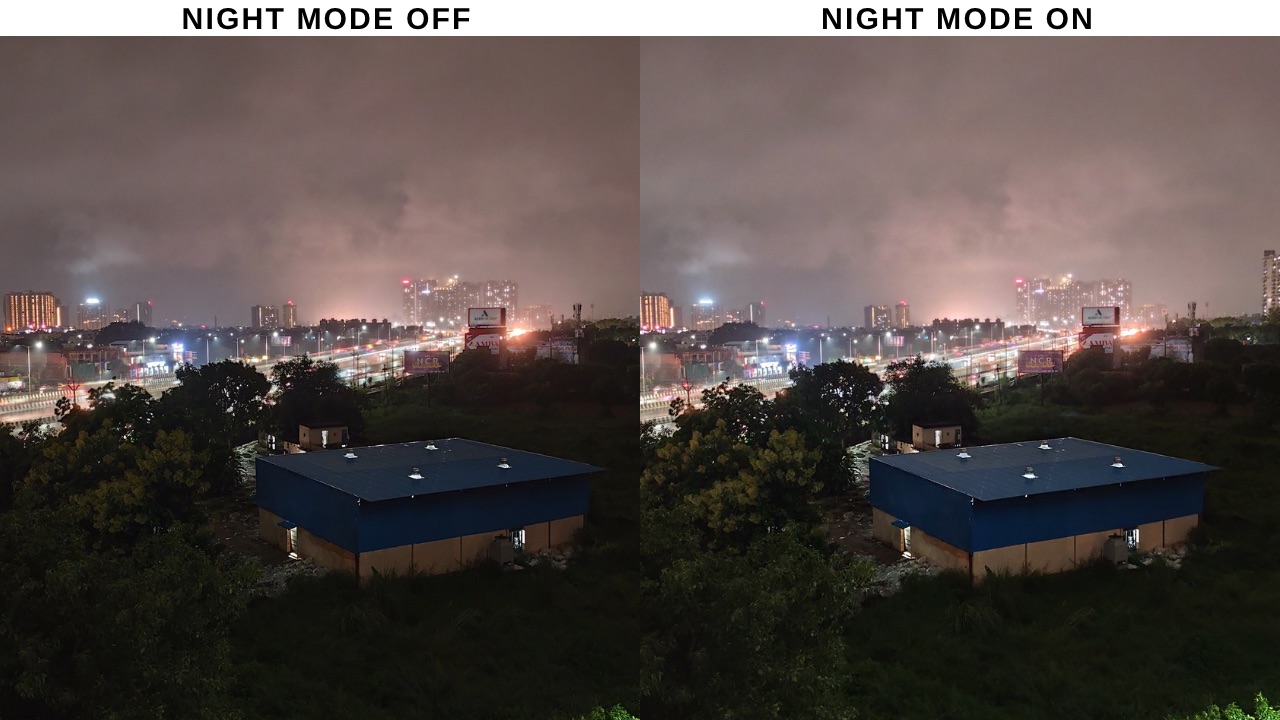
Shots taken at night have decent detailing and colour reproduction, but there’s slight noise in the photo, even when Night mode is enabled.


